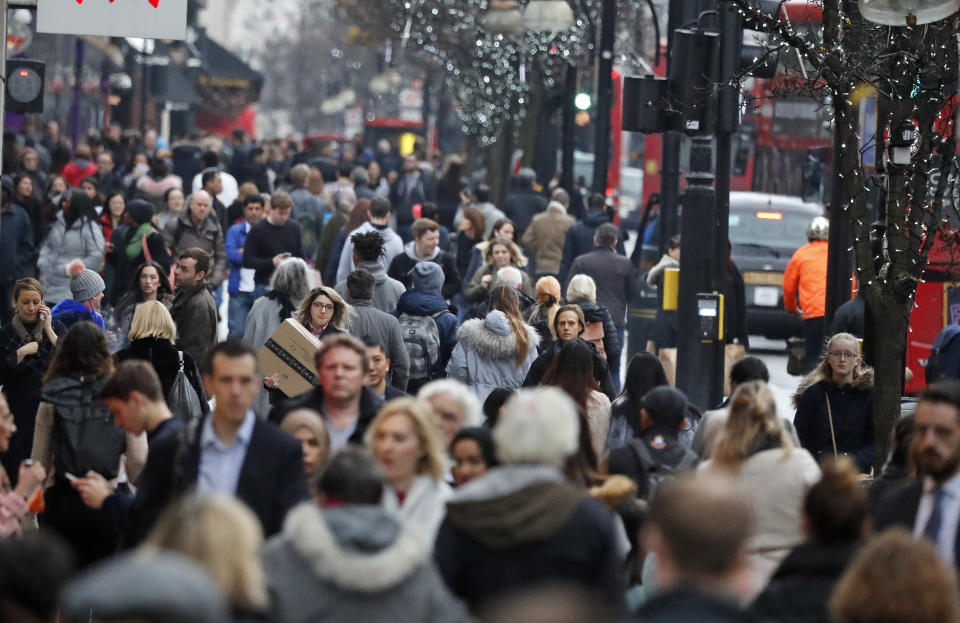No Christmas or election boost as retail sales crash in December

Retail sales unexpectedly declined in December, meaning that neither Christmas nor prime minister Boris Johnson’s emphatic election win were enough to boost the ailing high street.
Compared with November, sales declined by 0.6% in the final month of 2019, even though analysts had expected growth of 0.5%, according to official data from the Office for National Statistics (ONS).
That marks the fifth consecutive month of no growth in the retail sector — the longest stretch of weakness since sectoral records began in the 1970s.
The decline was driven by negative contributions in both food and non-food stores, the ONS said on Friday.
Sales at food stores declined by 1.3% compared with November, the worst monthly decline since October 2015, while clothing sales fell by 2%.
READ MORE: 2019 was the worst year ever for UK retail sales thanks to Brexit
The month served as a capstone to a tough year for retailers. Tens of thousands of employees in the sector lost their jobs, while behemoths like Sir Philip Green’s Arcadia Group underwent restructuring and closed stores across the country.
Sales declined by 0.9% in December compared with the same month in 2018, a figure that was also much worse than analysts had expected.
“The longer-term picture is still one of growth, although it has slowed considerably in recent months,” said Rhian Murphy of the ONS on Friday.
Analysts called the figures “shockingly weak” on Friday.
“December’s fall in retail sales volumes comes as a major shock and suggests that consumers retrenched severely at the end of last year amid heightened political uncertainty,” said Samuel Tombs, the chief UK economist at Pantheon Macroeconomics.
Data from the three months to the end of December — traditionally the best quarter of the year for retailers — was also poor. Retail sales declined by 1% in the period compared with the previous three months.
The amount spent also declined by 0.9%.
“The picture we’re seeing from trading figures is that shoppers reined in spending in the months ahead of Christmas, with the December monthly figure showing there was no festive bounce to make up for lost ground,” said Ed Monk, an associate director at Fidelity International.
READ MORE: UK economy shrank significantly ahead of general election, raising recession fears
The British Retail Consortium (BRC) said last week that, overall, 2019 was the worst year on record for the retail sector.
The BRC blamed Brexit and political uncertainty for a huge drop-off in consumer confidence.
“Twice the UK faced the prospect of a no-deal Brexit, as well as political instability that concluded in a December general election — further weakening demand for the festive period,” said Helen Dickinson, the CEO of the BRC.
Analysts also said that the weak data from December would further encourage the Bank of England to cut interest rates for the first time since 2016 later this month.
Despite the weakness, there are signs that Johnson’s victory has injected certainty to the UK economy.
Parliament last week approved Johnson’s Brexit deal, meaning that the UK will leave the bloc at the end of the month and then enter an 11-month transition period.
The financial services sector is more optimistic about the future for the first time since 2017, according to a separate survey, with optimism rising at its fastest rate since mid-2015.

 Yahoo News
Yahoo News 
